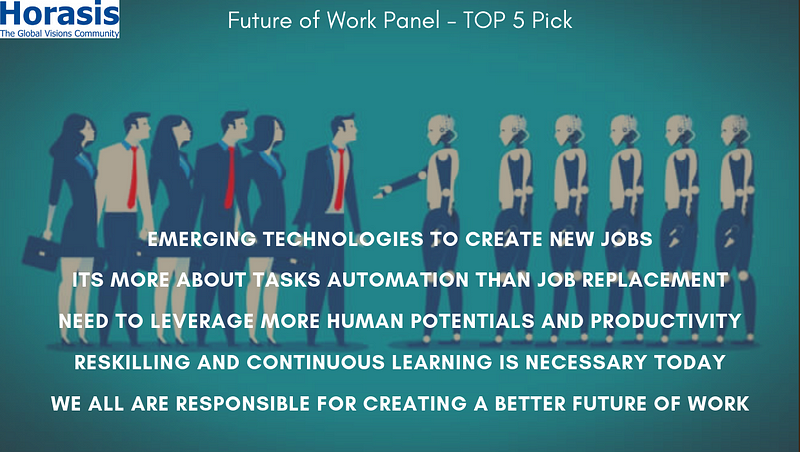The world of work is undergoing a major process of change and hence big attention. Over the next many years, we are likely to witness some of the most significant disruptions related to the workforce and work. The demographic, political and socioeconomic trends of the past years, like rapid urbanization, globalization and polarization are influencing these disruptions of working.
The notion of work has evolved over time, from a philosophical, sociological, historical and juridical perspective. With industrialization, the work gained more influence in society and changed over time. Most of the countries are at different levels of development and thus have a different way of going forward. While some leading the innovation and technology, others are late adopters.
Automation, gig economy, digital platforms, and other innovations are changing the fundamental nature of work. The rising of the new technology has brought us to a conjugation point and we are in transition in the world of work. As per world economic forum, 75 million current job roles may be displaced by the shift in the division of labor between humans and machines, while 133 million new job roles may emerge at the same time.
Job transformations are surging in a way, thus fabricating the window of opportunity for business, government and workforce to plan and put in place a new intuition for the global labor market. And a new mindset of agile learning is needed for the organization leaders and workforces.
Horasis convened the 2019 Horasis Global Meeting in Cascais, Portugal over 6–9 April. The annual Horasis Global Meeting is one of the world’s foremost gatherings of business and government leaders, offering an ideal platform to explore and foster cooperation, impact investing, and sustainable growth across the world.
The impact of technology and globalization on labor markets has emerged as an important policy issue as millions of jobs may be lost in the coming years. It will be challenging but possible to absorb these staffs given greater investment in yet unknown industries. How can we create these opportunities? Are they already occurring? What are the exemplars?
Was a part of a wonderful and very effective panel on “Future of Work” in Cascais on 8th April 2019 with some diversified experts across various industries and markets. Below are some TOP 5 pick from the panel’s outcome.

World of work should also care about equality, biases, diversity, and inclusions. We should transform our culture into the disrupting economies in a way by forming a better society. Future is about creating an organization as a living system from being a machine and become more sustainable with a high-performance team and collaborative leadership. All these need to be well supported by regularities and educations with a better transition and lifelong learning.
The changing population dynamics in emerging and developed countries have led to a surge in the proportion of the young population entering the labor market, which also contributes to urbanization and contributing to international migration. And also a big thrust towards the growth of startup ecosystems.
Many young people are starting their working lives in less secure and stable forms of employment. Many of these young respondents preferring flexible work schedules to be important, they find more values in owning their work and get paid for their tasks done than any conventional forms of employment, such as good incomes, opportunities for career development and social benefits.
Emerging skills gaps among the leaders and workforce may notably challenge an organization’s transformation. Many organizations are likely to turn to external workforces, temporary workers and freelancers to mark their skills gaps. An extensive approach to strategic workforce planning, reskilling and continuous learning initiatives are the key to managing such challenges with skills gaps and changing skills.
There is a lot of hype surrounding AI in HR and its impact on work, but Artificial Intelligence, automation, augmentation, and the Future of Work are much more than just buzzwords. We need to interpret the real opportunities that new technologies can offer HR in how it can improve its own function and the organization that it supports.
A great intro to how AI is impacting HR and what you need to do to prepare for the Future of Work is also now available with a course in the myHRfuture platform, name “Introduction to AI in HR and the Future of Work”.
Course Instructors: Ian Bailie and Soumyasanto Sen
The objective of this course is to provide you with a solid foundation of what the rise of new vendors incorporating AI and machine learning means to HR and how to consider building such tools into your digital HR strategy. On completing this e-learning module you will become much more fluent in understanding what the impact of AI is on HR and how the Future of Work is impacting all of our lives.
The world is moving at an exceptional pace and that is going to be faster in coming future as technology is ongoing to evolve at a very high speed as well. That means, the HR organizations not only prepare to counter them, but also ensure that they can help employees and leaders getting prepared to respond to the needs of the business, to the demands of the marketplace, and foresee the fast-growing changes in the related technologies around us.


